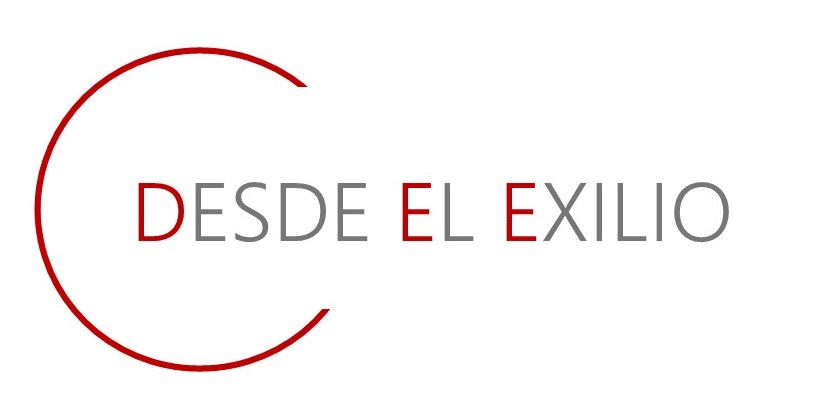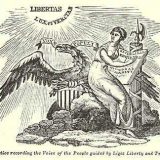Al menos eso es lo que se puede concluir tras la lectura de este artículo de George Melloan en THE WALL STREET JOURNAL, especialmente recomendable a los ciegos voluntarios que nos rodean:
THE WALL STREET JOURNAL
Martes, 15 de noviembre de 2005
ASSESSING EUROPE’S WOES
George MelloanEdouard Balladur, prime minister of France in 1993-95 and still a member of the National Assembly, asked at a New York luncheon last month whether the U.S. is trying to split Europe. The small gathering assembled by the French consul general was meant to promote Franco- American amity, so the query struck a surprisingly harsh note. Mr. Balladur once had been relatively friendly toward the U.S., even giving France a bracing dose of Reaganomics when he was premier.
One could have replied that French President Jacques Chirac has done far more than George W. Bush to split Europe. But why take advantage of the current French political discomfort and confusion? Things aren’t going well for Mr. Chirac and his fellow Gaullists. A lot has changed since 2003 when the French president was lionized by the European press for opposing the American invasion of Iraq. He and German Chancellor Gerhard Schroeder, who had joined him in defiance, have fallen on hard times.
Today, Mr. Chirac is facing a minor insurrection, as jobless and alienated immigrants torch cars and raise hell all over France. The United Nations Oil for Food scandals have shown that the principle guiding France’s defense of Saddam Hussein in 2003 may have been an appetite for Saddam’s bribes among well-connected French businessmen, rather than the lofty motives professed at the time.
As for Mr. Schroeder, he is no longer chancellor. Germany now has a fragile «grand coalition» government headed by Angela Merkel, whose Christian Democrats narrowly out-polled Mr. Schroeder’s Social Democrats in the September elections. The mishmash of economic policies thrashed out by the two incompatible partners last week will most likely worsen Germany’s economic woes.Other blows to European «unity» carry even fewer American fingerprints than the above. Voters in France and the Netherlands properly rejected a ponderous and unfathomable European Union constitution drafted by former French president Valery Giscard d’Estaing. All around Europe, in Spain, Italy and even Britain, there are signs of political disarray. Britain’s Tony Blair has just suffered a rebellion in his own party over his plans to lengthen the time suspected terrorists can be held without charge.
Only Poland among the large countries has its politics well in hand, judging from the orderly election last month of Lech Kaczynski, one of a new generation of postcommunist, free-market politicians, as the new Polish president. President Kaczynski will visit the U.S. next year to strengthen Polish-American ties. (The French, by the way, are miffed that the new president of an EU member country seems to fancy Washington more than Brussels).
But then, why not? The Atlantic alliance guaranteed European security and gave hope to captive peoples behind the Iron Curtain for 45 years. It is only natural that Europeans would begin to turn back toward that alliance at a time of political uncertainty. Indeed, the French friendship mission led by Mr. Balladur was meant as a friendly gesture towards the U.S.
Germany is the keystone state in determining whether the Atlantic alliance will be revived, and the signs on that front at least are favorable. Ms. Merkel has set the repair of U.S.-German relations as one of her priorities. She campaigned effectively against the Paris- Berlin-Moscow axis that Chancellor Schroeder had entered as part of his Yankee-baiting politics. It turned out that given the choice between Russia and France on the one hand and America on the other, a lot of Germans thought they still preferred the Americans.
Ms. Merkel expects to harden policy toward Moscow on grounds that Russian President Vladimir Putin is leading Russia in an increasingly antidemocratic direction. That will make German policy more consistent with that of Poland and the other former so-called Soviet «satellites,» which are also wary of Russia’s potential for revanchism. Ms. Merkel would like a further expansion of the EU to bring in at least Romania and Bulgaria, two former Communist states that are still outside the fold. She agrees with the U.S. that Europe’s embargo on arms sales to China should stay in place, no doubt disappointing Chinese President Hu Jintao when he visited her last week.
As with all of Ms. Merkel’s policies, her freedom of action will be limited by the unholy deals she has made with her coalition partners. Her foreign minister is a Social Democrat, Frank-Walter Steinmeier, former head of Mr. Schroeder’s chancellery. As with American presidents, German chancellors tend to take a strong hand in foreign policy, but we shall see.
Even if Ms. Merkel is constrained by her deals with the Social Democrats, she doesn’t seem likely to resort to the adventurism indulged in by her predecessor and his clever foreign minister, Joschka Fischer. On the other hand, Germany seems destined to have weak leadership in the months ahead, perhaps until the Merkel government falls and the Germans are forced to go the polls to have another try at deciding what they want.
Elsewhere in Europe, Silvio Berlusconi of Italy faces elections next April in a weakened position after having largely failed to push through economic reforms that would give Italy a more vigorous economy. He will be vulnerable to a leftist resurgence next spring, an unhappy thought.
Spain’s Socialist Prime Minister Jose Luis Rodriguez Zapatero is in even worse shape. His country threatens to split apart. Early this month, his party led a parliamentary vote agreeing to consider granting the prosperous northern region of Catalonia the right to become more autonomous, even to the extent of calling itself a «nation.» The long-restive Basque region is also pushing for greater autonomy. The inherent possibility that Spain will break up into a group of ministates has brought huge protest demonstrations in Madrid.
It would be foolish of Americans to think that all this turmoil in Europe somehow serves U.S. interests. Chaos in Europe has never worked that way before, it should be carefully remembered. Mr. Balladur was reminded that the U.S. has always promoted European unity, not division. There is nothing to be gained by the U.S. from watching cars burn in Paris, politicians fumbling in Berlin or mass demonstrations against the government in a Spain at risk of exploding into little pieces.»





Como de costumbre, en el WSJ hay elogios desmedidos para las «chachas» de los USA, como Merkel o el polaco, y patadas a todo el que sea, no ya contrario a los intereses USA, sino sencillamente que no este firmes y a la orden de Washington. Que se ponga a Polonia, un pais en la ruina mas total, que solo espera vivir de la ayuda caritativa de la UE, gobernada por ex-funcionarios comunistas que solo han cambiado de gorra, como ejemplo de pais «well in hand» es para partirse de risa.
El analisis de la situacion espanola tambien tiene su gracia, probablemente su «informador» es un pepero de la rama mas extrema.
jobless and alienated immigrants.
Parece que solo un 7% de ellos son expulsables, el resto son franceses de 3 generacion.
Ya puestos a escribir corradas prefiero la de «chicos revoltosos».